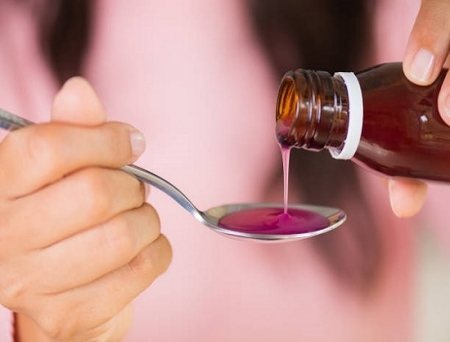WHO Issues Alert Over Contaminated Oral Liquid Medicines from India

The World Health Organization (WHO) has issued a Medical Product Alert following the identification of three substandard (contaminated) oral liquid medicines in India.
The affected products have been identified to be specific batches of COLDRIF, Respifresh TR and ReLife, manufactured by Sresan Pharmaceutical, Rednex Pharmaceuticals, and Shape Pharma. These are commonly used to relieve symptoms of the common cold, flu, or cough.
According to the WHO, the Central Drugs Standard Control Organization (CDSCO) of India reported on 8 October 2025 the presence of diethylene glycol (DEG) in at least three oral liquid medicines. This alert followed reports received by the WHO on 30 September 2025 of localised clusters of acute illness and child fatalities in India, linked to the consumption of these contaminated products.
WHO cautioned that these contaminated products pose significant risks to patients and can cause severe and potentially life-threatening illness.
“Diethylene glycol is toxic to humans when consumed and can prove fatal. The contaminated oral liquid medicines referenced in this alert are unsafe and their use, especially in children, may result in serious injury or death. Toxic effects can include abdominal pain, vomiting, diarrhoea, inability to pass urine, headache, altered mental state and acute kidney injury which may lead to death,” the organisation stated.
In response, CDSCO has confirmed that relevant state authorities have ordered an immediate halt to production at implicated manufacturing sites, suspended product authorisations and initiated a recall of the affected products.
The agency has also clarified that none of the contaminated medicines have been exported from India and there is currently no evidence of illegal export.
Nevertheless, the WHO has urged National Regulatory Authorities (NRAs) to consider targeted market surveillance, with particular attention to informal and unregulated supply chains where products may circulate undetected. NRAs are also advised to carefully evaluate the risks associated with any oral liquid medicines originating from the same manufacturing sites—particularly those produced since December 2024.
WHO said it is working closely with Indian health authorities to monitor the situation, identify the source of the contamination and mitigate any potential public health risks.
“The products identified in this alert are considered substandard as they fail to meet their quality standards and their specifications,” the agency noted.
Healthcare professionals have been advised to report any detection of these substandard products or any adverse reactions associated with their use to their National Regulatory Authorities or National Pharmacovigilance Centres.
Central Drugs Standard Control Organization (CDSCO COLDRIF Contaminated Oral Liquid Medicines Diethylene glycol (DEG) Medical Product Alert Rednex Pharmaceuticals ReLife Respifresh TR Shape Pharma Sresan Pharmaceutical Substandard medicines World Health Organization (WHO)
Last news about this category
We use our own and third party cookies to produce statistical information and show you personalized advertising by analyzing your browsing, according to our COOKIES POLICY. If you continue visiting our Site, you accept its use.
More information: Privacy Policy

















